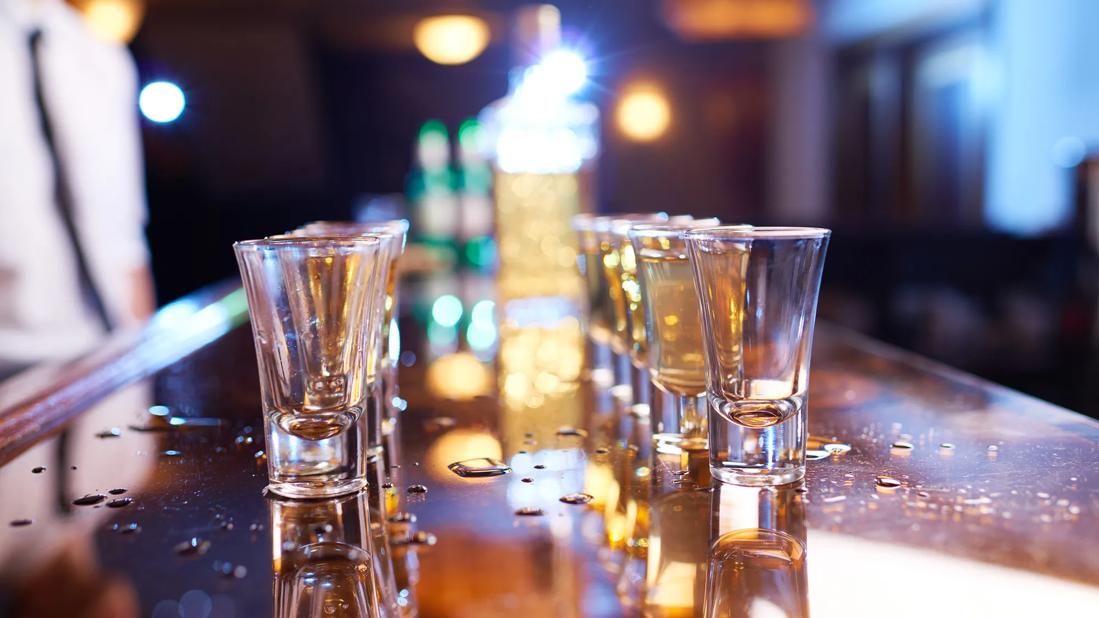Forget the myth and answer nature’s call when your bladder feels full

Image content: This image is available to view online.
View image online (https://assets.clevelandclinic.org/transform/89e1484a-386e-4774-8bd5-ba600f2ef324/empty-alcohol-glasses-lined-up-486255198)
A double row of shot glasses lined up on a bar
One trip to the restroom during a night out drinking inevitably leads to another … and another … and another. Bar wisdom claims that this constant back-and-forth trek is the result of “breaking the seal.”
Advertisement
Cleveland Clinic is a non-profit academic medical center. Advertising on our site helps support our mission. We do not endorse non-Cleveland Clinic products or services. Policy
That logic seems solid under the neon glow of a weekend night. But does it hold up under closer (and sober) examination? Let’s find out from urologist Petar Bajic, MD.
The legendary “seal” is celebrated among the bar crowd as a water-tight cap that locks down your bladder. When fully intact, it supposedly keeps you from heading to the bathroom to pee. (This ensures that you never miss any fun.)
Eventually, though, nature calls ― and when you finally answer, you supposedly “break” the seal and open the urinary floodgates. Pub wisdom says you’ll then spend the rest of the night making tracks to the restroom.
Let’s start with a basic fact when it comes to drinking, what goes in eventually comes out.
Your body’s fluid-holding tank is a pear-sized bladder, after all, not a five-gallon bucket. So, when you’re tipping back glasses of any beverage, you can only hold in so much. “Eventually, you have to empty,” states Dr. Bajic.
Beer, booze and wine increase that effect, too. The reason? Alcohol is a diuretic, which in the simplest of terms, increases the production of urine.
But let’s break it down a little more.
Alcohol suppresses the release of an antidiuretic hormone (ADH) called vasopressin. This hormone instructs your kidneys to absorb any guzzled fluids to distribute to the rest of your body.
Advertisement
So, as your brain slows down ADH production during happy hour, most of the drinks going down bypass your kidneys and take a more direct route to your bladder.
Now, your bladder only holds about 300 to 400 milliliters of fluid, which is roughly 12 ounces ― so it doesn’t take long to exceed capacity. Pressure builds at this point, resulting in the urge to pee.
Alcohol also may irritate your bladder, increasing the feeling that you need to tinkle. (That also could contribute to wetting the bed after a night of drinking.)
There isn’t a biological barrier known as “the seal,” confirms Dr. Bajic ― but it’s easy to see where the theory started. After all, your first bathroom break typically is followed by many return trips with less time between pit stops.
But there’s a logical explanation for the increased output: It’s your body catching up with all the drinks you’ve tipped back during the evening.
“Remember the formula: Fluid in equals fluid out,” he reiterates. “That’s what it all comes back to.”
Delaying a much-needed restroom visit isn’t a good idea, emphasizes Dr. Bajic. Repeatedly preventing the natural flow of things can lead to urinary tract infections or broader health issues with your bladder or kidneys.
Holding it for too long also may lead to urine leakage, which isn’t exactly what one wants while out in a crowd.
If you want to go to the bathroom less during a night out, there’s one proven way to reduce your trips: drink less. Less fluid in means less fluid out after all. (And yes, it really is that simple.)
Otherwise, listen to your body. “If you have to go, GO,” advises Dr. Bajic. “You’re not protecting any sort of ‘seal’ by waiting.”
Advertisement

Sign up for our Health Essentials emails for expert guidance on nutrition, fitness, sleep, skin care and more.
Learn more about our editorial process.
Advertisement
Your tolerance decreases with age, thanks to body changes, health conditions and medications you may take
‘Blackout rage gallons’ can lead to dangerous levels of alcohol consumption
An enzyme deficiency or rosacea are potential causes of alcohol flush
ACV may help lower blood sugar and calm acid reflux, but don’t believe all the hype
Yes, grabbing a few beers or a couple of glasses of wine or cocktails with friends can increase your heart rate — dangerously in some cases
Alcohol (in any amount) is a well-known cause of cancer
Alcohol provides empty calories, heightens cravings and may slow down your metabolism
Drinking during the day can result in drinking more than usual and worsen your sleep cycle
Although it could be used as a moisturizer, this new trend is not recommended
Communicating clear limits helps protect your time, energy and emotional well-being
High cholesterol can be genetic, but testing and treatment can lower your heart disease risk